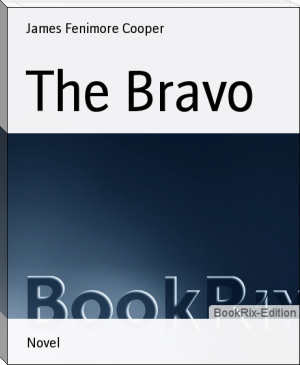Catriona by Robert Louis Stevenson (best motivational books of all time TXT) 📖

- Author: Robert Louis Stevenson
Book online «Catriona by Robert Louis Stevenson (best motivational books of all time TXT) 📖». Author Robert Louis Stevenson
There gaed a cauld stend o’ fear into Tam’s heart. “This thing is nae bird,” thinks he. His een turnt backward in his heid and the day gaed black aboot him. “If I get a dwam here,” he toucht, “it’s by wi’ Tam Dale.” And he signalled for the lads to pu’ him up.
And it seemed the solan understood about signals. For nae sooner was the signal made than he let be the rope, spried his wings, squawked out loud, took a turn flying, and dashed straucht at Tam Dale’s een. Tam had a knife, he gart the cauld steel glitter. And it seemed the solan understood about knives, for nae suner did the steel glint in the sun than he gied the ae squawk, but laighter, like a body disappointit, and flegged aff about the roundness of the craig, and Tam saw him nae mair. And as sune as that thing was gane, Tam’s heid drapt upon his shouther, and they pu’d him up like a deid corp, dadding on the craig.
A dram of brandy (which he went never without) broucht him to his mind, or what was left of it. Up he sat.
“Rin, Geordie, rin to the boat, mak’ sure of the boat, man—rin!” he cries, “or yon solan’ll have it awa’,” says he.
The fower lads stared at ither, an’ tried to whilly-wha him to be quiet. But naething would satisfy Tam Dale, till ane o’ them had startit on aheid to stand sentry on the boat. The ithers askit if he was for down again.
“Na,” says he, “and niether you nor me,” says he, “and as sune as I can win to stand on my twa feet we’ll be aff frae this craig o’ Sawtan.”
Sure eneuch, nae time was lost, and that was ower muckle; for before they won to North Berwick Tam was in a crying fever. He lay a’ the simmer; and wha was sae kind as come speiring for him, but Tod Lapraik! Folk thocht afterwards that ilka time Tod cam near the house the fever had worsened. I kenna for that; but what I ken the best, that was the end of it.
It was about this time o’ the year; my grandfaither was out at the white fishing; and like a bairn, I but to gang wi’ him. We had a grand take, I mind, and the way that the fish lay broucht us near in by the Bass, whaur we foregaithered wi’ anither boat that belanged to a man Sandie Fletcher in Castleton. He’s no lang deid neither, or ye could speir at himsel’. Weel, Sandie hailed.
“What’s yon on the Bass?” says he.
“On the Bass?” says grandfaither.
“Ay,” says Sandie, “on the green side o’t.”
“Whatten kind of a thing?” says grandfaither. “There cannae be naething on the Bass but just the sheep.”
“It looks unco like a body,” quo’ Sandie, who was nearer in.
“A body!” says we, and we none of us likit that. For there was nae boat that could have brought a man, and the key o’ the prison yett hung ower my faither’s at hame in the press bed.
We keept the twa boats close for company, and crap in nearer hand. Grandfaither had a gless, for he had been a sailor, and the captain of a smack, and had lost her on the sands of Tay. And when we took the glass to it, sure eneuch there was a man. He was in a crunkle o’ green brae, a wee below the chaipel, a’ by his lee lane, and lowped and flang and danced like a daft quean at a waddin’.
“It’s Tod,” says grandfather, and passed the gless to Sandie.
“Ay, it’s him,” says Sandie.
“Or ane in the likeness o’ him,” says grandfaither.
“Sma’ is the differ,” quo’ Sandie. “De’il or warlock, I’ll try the gun at him,” quo’ he, and broucht up a fowling-piece that he aye carried, for Sandie was a notable famous shot in all that country.
“Haud your hand, Sandie,” says grandfaither; “we maun see clearer first,” says he, “or this may be a dear day’s wark to the baith of us.”
“Hout!” says Sandie, “this is the Lord’s judgment surely, and be damned to it,” says he.
“Maybe ay, and maybe no,” says my grandfaither, worthy man! “But have you a mind of the Procurator Fiscal, that I think ye’ll have foregaithered wi’ before,” says he.
This was ower true, and Sandie was a wee thing set ajee. “Aweel, Edie,” says he, “and what would be your way of it?”
“Ou, just this,” says grandfaither. “Let me that has the fastest boat gang back to North Berwick, and let you bide here and keep an eye on Thon. If I cannae find Lapraik, I’ll join ye and the twa of us’ll have a crack wi’ him. But if Lapraik’s at hame, I’ll rin up the flag at the harbour, and ye can try Thon Thing wi’ the gun.”
Aweel, so it was agreed between them twa. I was just a bairn, an’ clum in Sandie’s boat, whaur I thoucht I would see the best of the employ. My grandsire gied Sandie a siller tester to pit in his gun wi’ the leid draps, bein mair deidly again bogles. And then the as boat set aff for North Berwick, an’ the tither lay whaur it was and watched the wanchancy thing on the brae-side.
A’ the time we lay there it lowped and flang and capered and span like a teetotum, and whiles we could hear it skelloch as it span. I hae seen lassies, the daft queans, that would lowp and dance a winter’s nicht, and still be lowping and dancing when the winter’s day cam in. But there would be fowk there to hauld them company, and the lads to egg them on; and this thing was its lee-lane. And there would be a fiddler diddling his elbock in the chimney-side; and this thing had nae music but the skirling of the solans. And the lassies were bits o’ young things wi’ the reid life dinnling and stending in their members; and this was a muckle, fat, creishy man, and him fa’n in the vale o’ years. Say what ye like, I maun say what I believe. It was joy was in the creature’s heart, the joy o’ hell, I daursay: joy whatever. Mony a time I have askit mysel’ why witches and warlocks should sell their sauls (whilk are their maist dear possessions) and be auld, duddy, wrunkl’t wives or auld, feckless, doddered men; and then I mind upon Tod Lapraik dancing a’ the hours by his lane in the black glory of his heart. Nae doubt they burn for it muckle in hell, but they have a grand time here of it, whatever!—and the Lord forgie us!
Weel, at the hinder end, we saw the wee flag yirk up to the mast-heid upon the harbour rocks. That was a’ Sandie waited for. He up wi’ the gun, took a deleeberate aim, an’ pu’d the trigger. There cam’ a bang and then ae waefu’ skirl frae the Bass. And there were we rubbin’ our een and lookin’ at ither like daft folk. For wi’ the bang and the skirl the thing had clean disappeared. The sun glintit, the wund blew, and there was the bare yaird whaur the Wonder had been lowping and flinging but ae second syne.
The hale way hame I roared and grat wi’ the terror o’ that dispensation. The grawn folk were nane sae muckle better; there was little said in Sandie’s boat but just the name of God; and when we won in by the pier, the harbour rocks were fair black wi’ the folk waitin’ us. It seems they had fund Lapraik in ane of his dwams, cawing the shuttle and smiling. Ae lad they sent to hoist the flag, and the rest abode there in the wabster’s house. You may be sure they liked it little; but it was a means of grace to severals that stood there praying in to themsel’s (for nane cared to pray out loud) and looking on thon awesome thing as it cawed the shuttle. Syne, upon a suddenty, and wi’ the ae dreidfu’ skelloch, Tod sprang up frae his hinderlands and fell forrit on the wab, a bluidy corp.
When the corp was examined the leid draps hadnae played buff upon the warlock’s body; sorrow a leid drap was to be fund! but there was grandfaither’s siller tester in the puddock’s heart of him.
Andie had scarce done when there befell a mighty silly affair that had its consequence. Neil, as I have said, was himself a great narrator. I have heard since that he knew all the stories in the Highlands; and thought much of himself, and was thought much of by others on the strength of it. Now Andie’s tale reminded him of one he had already heard.
“She would ken that story afore,” he said. “She was the story of Uistean More M’Gillie Phadrig and the Gavar Vore.”
“It is no sic a thing,” cried Andie. “It is the story of my faither (now wi’ God) and Tod Lapraik. And the same in your beard,” says he; “and keep the tongue of ye inside your Hielant chafts!”
In dealing with Highlanders it will be found, and has been shown in history, how well it goes with Lowland gentlefolk; but the thing appears scarce feasible for Lowland commons. I had already remarked that Andie was continually on the point of quarrelling with our three MacGregors, and now, sure enough, it was to come.
“Thir will be no words to use to shentlemans,” says Neil.
“Shentlemans!” cries Andie. “Shentlemans, ye hielant stot! If God would give ye the grace to see yoursel’ the way that ithers see ye, ye would throw your denner up.”
There came some kind of a Gaelic oath from Neil, and the black knife was in his hand that moment.
There was no time to think; and I caught the Highlander by the leg, and had him down, and his armed hand pinned out, before I knew what I was doing. His comrades sprang to rescue him, Andie and I were without weapons, the Gregara three to two. It seemed we were beyond salvation, when Neil screamed in his own tongue, ordering the others back, and made his submission to myself in a manner the most abject, even giving me up his knife which (upon a repetition of his promises) I returned to him on the morrow.
Two things I saw plain: the first, that I must not build too high on Andie, who had shrunk against the wall and stood there, as pale as death, till the affair was over; the second, the strength of my own position with the Highlanders, who must have received extraordinary charges to be tender of my safety. But if I thought Andie came not very well out in courage, I had no fault to find with him upon the account of gratitude. It was not so much that he troubled me with thanks, as that his whole mind and manner appeared changed; and as he preserved ever after a great timidity of our companions, he and I were yet more constantly together.
THE MISSING WITNESS
On the seventeenth, the day I was trysted with the Writer, I had much rebellion against fate. The thought of him waiting in the King’s Arms, and of what he would think, and what he would say when next we met, tormented and oppressed me. The truth was unbelievable, so much I had to grant, and it seemed cruel hard I should be posted as a liar and a coward, and have never consciously omitted what it was possible that I should do. I repeated this form of words with a kind of bitter relish, and re-examined in that light the steps of my behaviour. It seemed I had behaved to James Stewart as a brother might; all the past was a picture that I could be proud of, and there was only the present to consider. I could not swim the sea, nor yet fly in the air, but there was always Andie. I had done him a service, he liked me; I had a lever there to work on; if it were just for decency, I must try once more with Andie.
It was late afternoon; there was no sound in all the Bass but the lap
 Have you ever thought about what fiction is? Probably, such a question may seem surprising: and so everything is clear. Every person throughout his life has to repeatedly create the works he needs for specific purposes - statements, autobiographies, dictations - using not gypsum or clay, not musical notes, not paints, but just a word. At the same time, almost every person will be very surprised if he is told that he thereby created a work of fiction, which is very different from visual art, music and sculpture making. However, everyone understands that a student's essay or dictation is fundamentally different from novels, short stories, news that are created by professional writers. In the works of professionals there is the most important difference - excogitation. But, oddly enough, in a school literature course, you don’t realize the full power of fiction. So using our website in your free time discover fiction for yourself.
Have you ever thought about what fiction is? Probably, such a question may seem surprising: and so everything is clear. Every person throughout his life has to repeatedly create the works he needs for specific purposes - statements, autobiographies, dictations - using not gypsum or clay, not musical notes, not paints, but just a word. At the same time, almost every person will be very surprised if he is told that he thereby created a work of fiction, which is very different from visual art, music and sculpture making. However, everyone understands that a student's essay or dictation is fundamentally different from novels, short stories, news that are created by professional writers. In the works of professionals there is the most important difference - excogitation. But, oddly enough, in a school literature course, you don’t realize the full power of fiction. So using our website in your free time discover fiction for yourself. 




Comments (0)